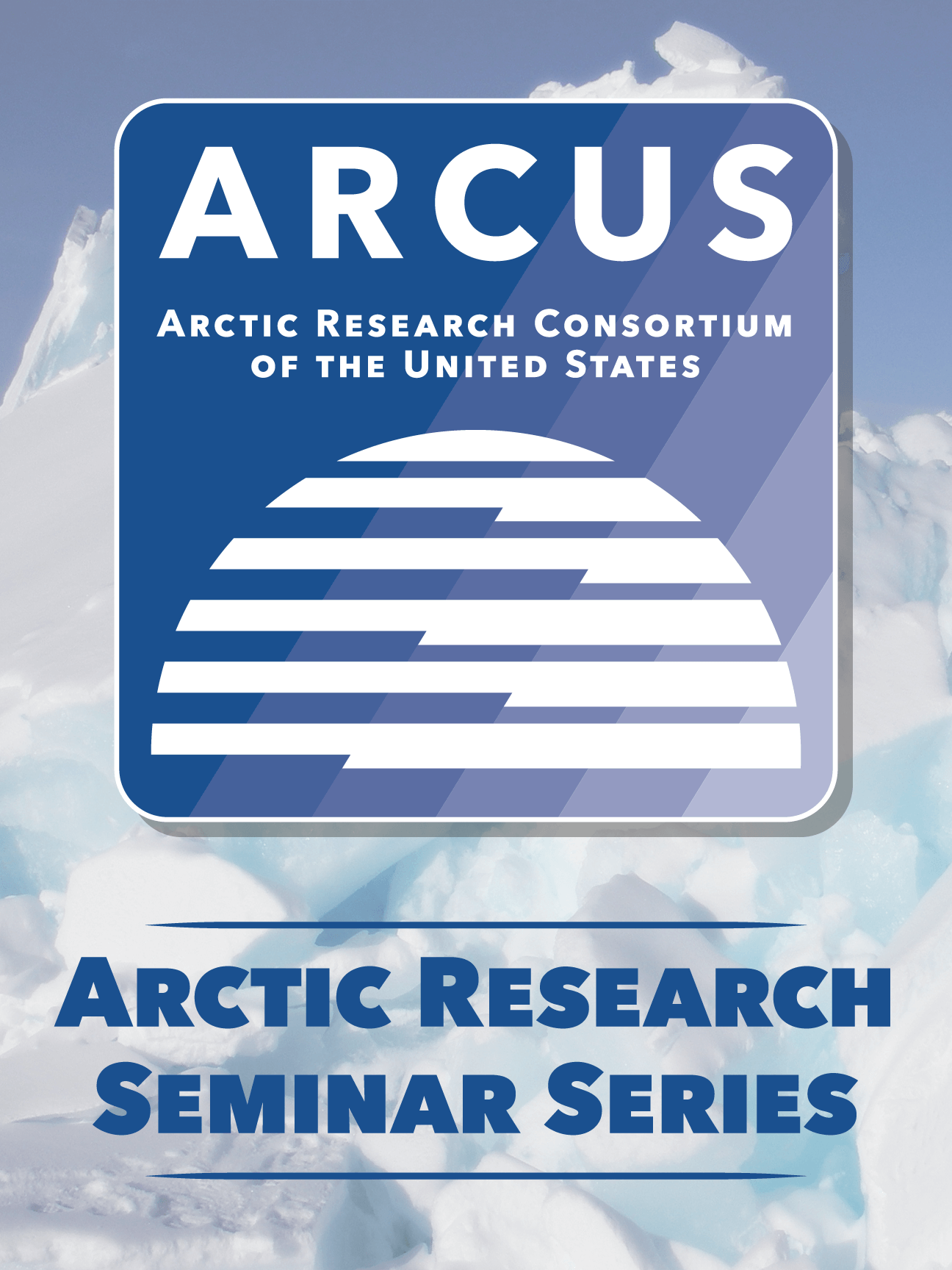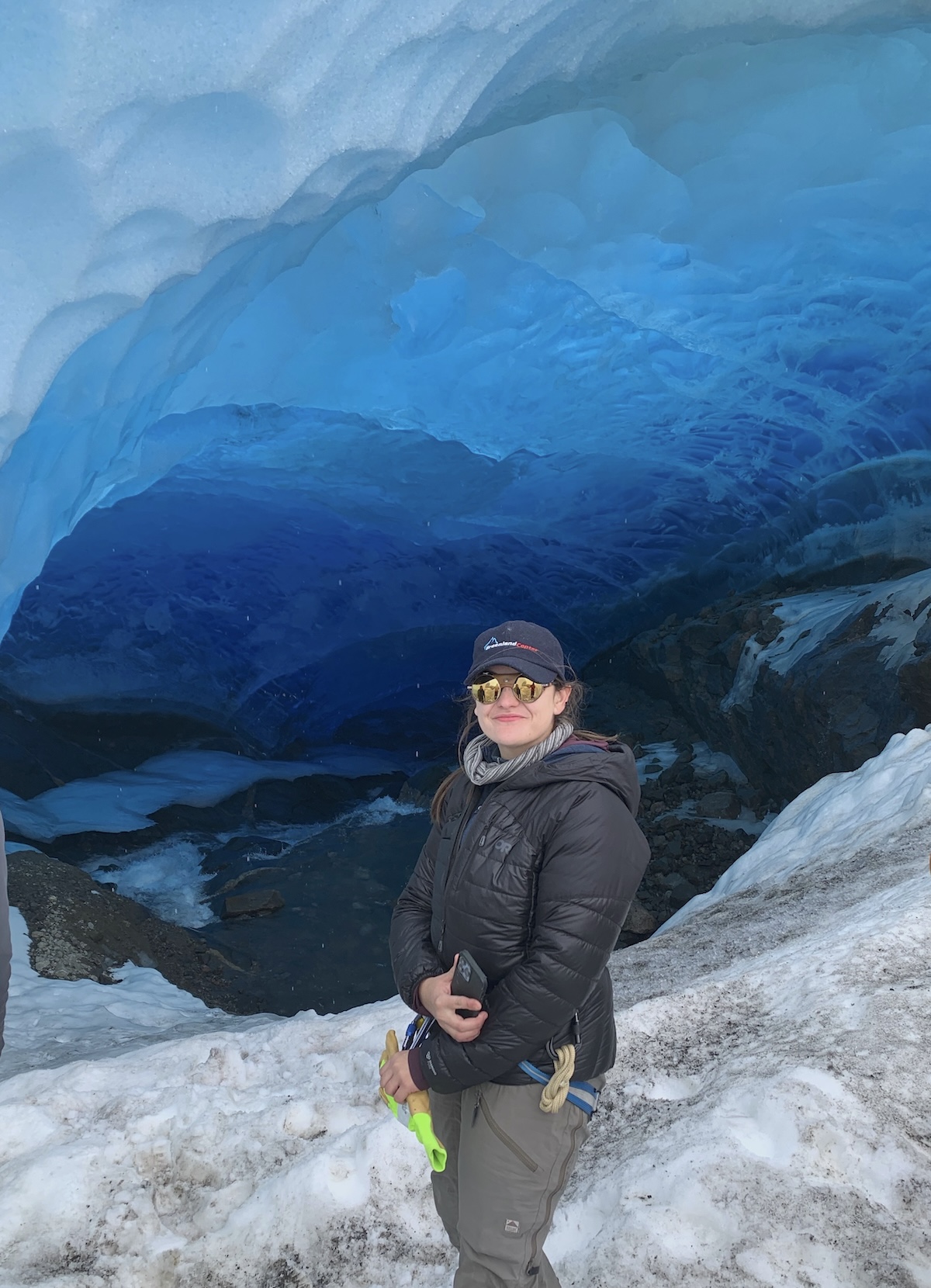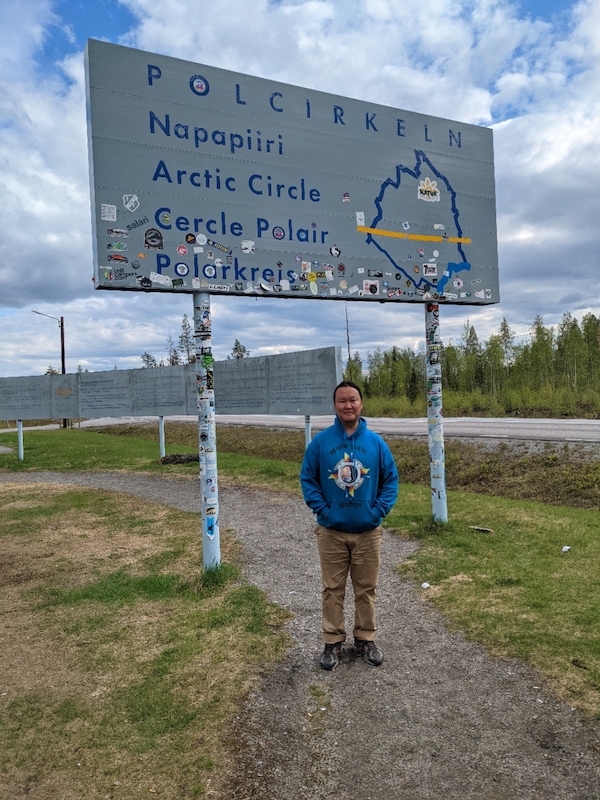Arctic Research Seminar Series

The ARCUS Arctic Research Seminar Series invites leading Arctic researchers and community leaders to share the latest findings in Arctic research and what they mean for decision-making. These webinar events are free and open to the public, and will be of particular interest to the international Arctic research community, federal agency officials, non-governmental organizations, Arctic educators, and the public.
Registration is required for each event.
For those of you on Twitter, we also invite you to join our online discussion of each event using the hashtag #arcuswebinar.
The ARCUS Arctic Research Seminar Series is made possible with support by the National Science Foundation under Cooperative Agreement No. PLR-1928794.
Please contact Stacey Stoudt at stacey@arcus.org with any questions.
Seminar/Webinar Series Mailing List
To receive information about future seminar/webinar events, please subscribe to our mailing list.
Seminar/Webinar Archive
For videos of past ARCUS Arctic Research Seminars, please visit our seminar/webinar archive.
Recent Seminar
Cracks in the Ice: Using observations and models of crevasse growth to understand the transport of water to the base of glaciers and ice sheets
When: Thursday, 5 December 2024, 9:00-10:00 a.m. AKST
Where: Online
Abstract
The Greenland Ice Sheet is a major contributor to global sea level rise, driven by both increased melting and dynamic ice discharge into the ocean. While often treated separately, these processes are interconnected because when surface meltwater flows into crevasses—cracks on the ice sheet surface—they can hydrofracture through the entire ice sheet and reach the bed. Once surface meltwater reaches the ice-bedrock interface it can modulate subglacial water pressures, the structure of the subglacial drainage system, and influence ice dynamics.
In this talk, Jessica will focus on recent work understanding these hydraulic connections. First, I will discuss how far inland these hydraulic connections can extend into the ice sheet’s interior using coupled observational, remote sensing, and modeling applied to the firn aquifer on Helheim Glacier in southeast Greenland. Next, I will discuss in situ observations of crevasse opening and what it means for firn aquifer drainage. Finally, I will discuss some modeling work applied to rapid hydraulically driven fracture propagation from the fast drainage of supraglacial lakes on the Greenland Ice Sheet.
Speaker Details

Dr. Jessica Mejia is an assistant professor of Cryosphere and Polar Sciences in the Department of Earth and Environmental Sciences at Syracuse University. Dr. Mejia is a glaciologist whose research focuses on understanding how water interacts with glaciers and ice sheets to affect ice flow, the understanding of which is important to constrain glacial contributions to sea level rise. She uses observational, field-based methods (hydrologic, geodetic, and geophysical), process-based models, and remote sensing to study the structure and evolution of the glacial hydraulic system and the physical processes controlling hydro-dynamic coupling on the Greenland Ice Sheet. Other interests include working towards efforts to increase diversity and build community within the Cryospheric sciences.
Recent Seminar
Sustainability of Indigenous Communities and Global Change: perspectives from Sakha, NE Siberia
When: 2 October 2024, 9:00 a.m. Alaska Daylight Time
Where: Online
Abstract
Indigenous understanding of sustainability is embedded in close relations to land and environment, Indigenous Knowledge systems, Indigenous epistemologies and ontologies, and Indigenous languages. However, the sustainability of Indigenous peoples’ livelihoods is significantly affected by various global change drivers. In the Arctic, Indigenous peoples’ livelihoods are impacted by environmental, social, and cultural changes, including climate change, environmental pollution, economic processes, and resource extraction. This presentation aims to review and synthesize recent academic and gray literature on the sustainability of Indigenous communities in Sakha Republic, Northeast Siberia, Russia in the face of global change with a particular focus on land- and water-based traditional activities, native language, and the Indigenous Knowledge system.
Speaker Details

Dr. Stanislav Saas Ksenofontov is an Indigenous Sakha social scientist from the Sakha Republic in North-Eastern Siberia, Russia. In his research, Stanislav focuses on the vulnerability of Arctic Indigenous social-ecological systems to global change drivers, namely climate change, industrial development, socio-political transformations. Other research interests include Arctic Indigenous sustainability, Arctic urbanization, Indigenous identities, Russian energy megaprojects, Asian stakes in the Arctic. Dr. Ksenofontov holds a Ph.D. in Human Geography from the University of Zurich, Switzerland. Currently, he is a postdoctoral scholar at the ARCTICenter, University of Northern Iowa, USA. Besides research, Stanislav serves as a Fellowship Coordinator at the International Arctic Science Committee (Iceland)
